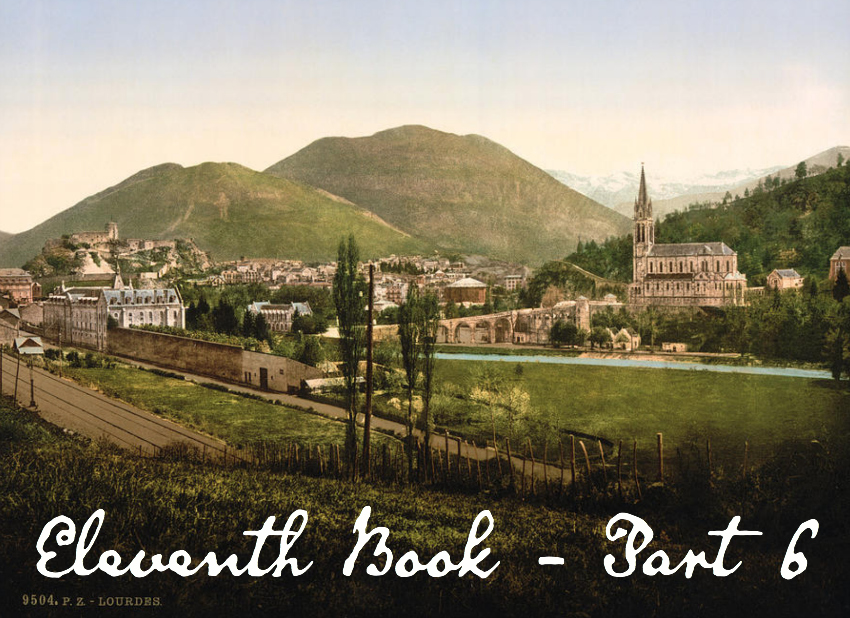The greater number of persons mentioned in the course of this long history are still living.
Only a few of them have departed from this lower world. The Prefect, Baron Massy, the Judge, M. Duprat, the Mayor, M. Lacadé, and the Minister, M. Fould, are dead.
Only a few of them have departed from this lower world. The Prefect, Baron Massy, the Judge, M. Duprat, the Mayor, M. Lacadé, and the Minister, M. Fould, are dead.
Many have advanced in their career, M. Rouland has left the Ministry of Public Worship―which, it appears, did not altogether suit him―to administer the golden ledgers of the Bank of France. M. Dutour, Procureur Impérial, has reached a higher position in the Court of Judicature. M. Jacomet is Chief Commissary of Police in one of the most important cities of the Empire.
Bourriette, Croisine Beauhohorts and her son, Mme. Rizan, Henry Busquet, Mlle. Moreau de Sazenay, Mme. Crozat and Jules Lacassagne―in fact, all those whose cures we have narrated―are still in high health and bear witness, by their recovery and the disappearance of their maladies, to the omnipotent mercy of the Apparition of the Grotto.
Doctor Dozons continues to be the most eminent physician of Lourdes. Doctor Vergez superintends the baths at Beréges, and can attest to the visitors of that celebrated resort the miracles authenticated by him long ago. M. Estrades, an impartial observer, whose impressions we have more than once referred to, is Receveur des Contributions Indirectes at Bordeaux. He resides in the Rue Ducan, No. 14.
Monseigneur Laurence is still Bishop of Tarbes. The faculties of the Prelate have suffered no diminution from age. He remains precisely as we have depicted him in this book. He possesses near the Grotto a house to which he at times retires to meditate―in those places so loved by the Virgin―on the grave duties and grave responsibilities of a Christian Bishop, whose diocese has been the scene of such a marvelous instance of grace.
The Abbé Peyramale has recovered from the serious illness to which we referred above. He is still the venerated pastor of the Christian town of Lourdes, where he is personally known as ever being the first to come forward when any good is to be done. Long, long after his time, when he lies under the turf in the midst of the generation trained by him to the service of God, and the successors of his successors dwell in his Presbytery and mount his chair in the Church, the memory of him will live in the mind of all, and when they repeat the words, “the Curé of Lourdes,” it is to him that their thoughts will recur.
Louise Soubirous, the mother of Bernadette, died 8th of December, 1866, the very day of the Feast of the Immaculate Conception. In choosing this day for removing the mother from the misery of this world, she who had said to her child, “I am the Immaculate Conception,” seems to have wished to temper, in the minds of the survivors, the bitterness of such a death, and to show them―as a certain pledge of hope and of a happy resurrection―the souvenir of her radiant Apparition.
While millions of francs are appropriated to the completion of the august temple, Soubirous, the father of Bernadette, has remained a poor miller, earning a precarious existence by the labor of his hands. Marie, the one of his daughters who was with the youthful seer at the time of the first Apparition, is married to an honest peasant, who has learned the trade of miller, and works with his father-in-law. Bernadette’s other companion on that occasion is now in service at Bordeaux.


No comments:
Post a Comment